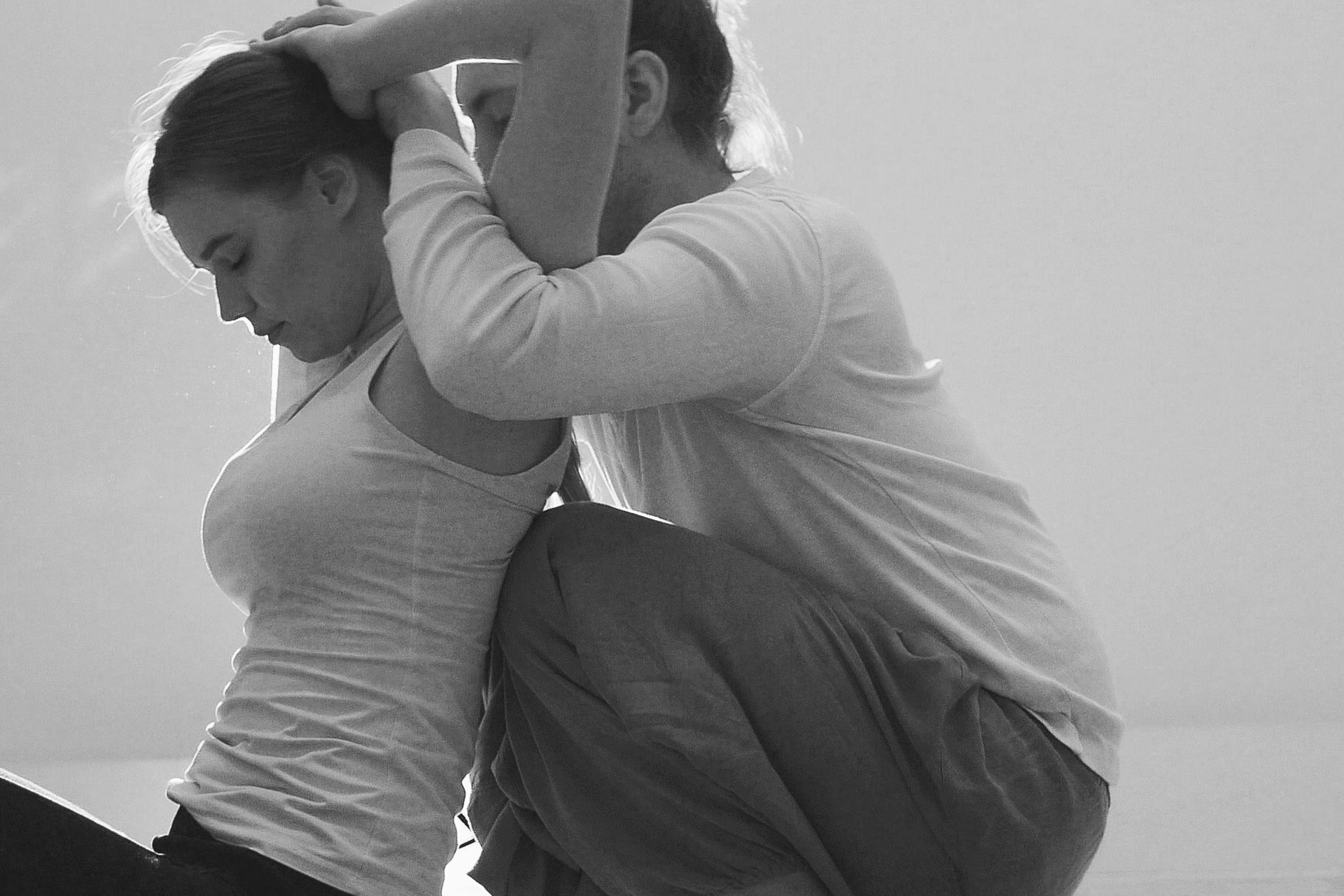
During a Thai massage session, the TVT therapist will first use palm and thumb pressure along your body’s energy lines to warm the muscles and increase blood flow. This prepares your body physically and emotionally, enabling you to obtain the maximum benefit from the vigorous stretching session that follows. Please note - the experienced TVT therapist will never stretch you more than your body can comfortably sustain.

How it works
Used by our clients on a regular weekly, fortnightly or monthly basis, or as a one-off for a treat or appreciation day
Received on a Thai futon on the floor, fully clothed. We recommend loose, comfortable clothing, perhaps what you’d wear to a yoga or exercise class.
Usually carried out during the normal working day
Duration – 25-60 minutes
We provide everything you need to arrange the bookings
We’ll help you select a suitable space
“Great service and really enjoyable, I look forward to it every month.”

Benefits to the employee
Relieves muscular tension
Combats mind and body fatigue
Reduces emotional stress
Improves joint mobility and increases flexibility
Adds muscle tone
Stimulates the nervous system
Stimulates the lymphatic system
Relaxing yet invigorating
Benefits to the company
Helps reduce physical and emotional tension
Addresses physical work-related problems (e.g. ‘Computer Neck’)
Reduces stress-related illness
Increases productivity
Decreases occupational health and HR costs
Less absenteeism due to stress and back problems
Promotes better morale and happier staff
About Thai Massage
Thai Massage is relatively new to this country, but it is actually an ancient form of massage thought to have been developed by Buddhist monks in Thailand 2,500 years ago.
It uses passive stretching and gentle pressure along the body’s energy lines to increase flexibility, relieve muscle and joint tension and balance the body’s energy systems.
Although we said ‘passive’ stretching, this is actually an energetic, active massage. However, the TVT therapist does the active bit, moving your body into various stretches and positions without any work on your part (this is why it’s sometimes called ‘lazy man’s yoga’). They will use, not just their hands, but their feet, knees, elbows and body weight too, in order to stretch your body into a variety of positions that most closely resemble yoga positions.
The goal is to increase blood flow and mobility in the joints and manipulate the muscles towards further relaxation. A Thai massage relieves muscle tension, increases flexibility, adds to muscle tone and helps aid joint mobility – all whilst helping to reduce stress.
Wellness claims for Thai Massage include:
Reduces muscle tension and spasms, releasing tension and trapped nerves
Improves blood circulation
Mobilises the joints, increasing suppleness and enhancing flexibility (especially after a series of treatments)
Balances and increases energy: During a treatment, your therapist will manipulate areas of blocked energy until it is sufficiently released before beginning the stretching element of the massage
Can help treat sciatica, headaches and neck pain
Releases nerve tension and emotional tension held within the body. This will result in a heightened sense of wellbeing and relaxation.




